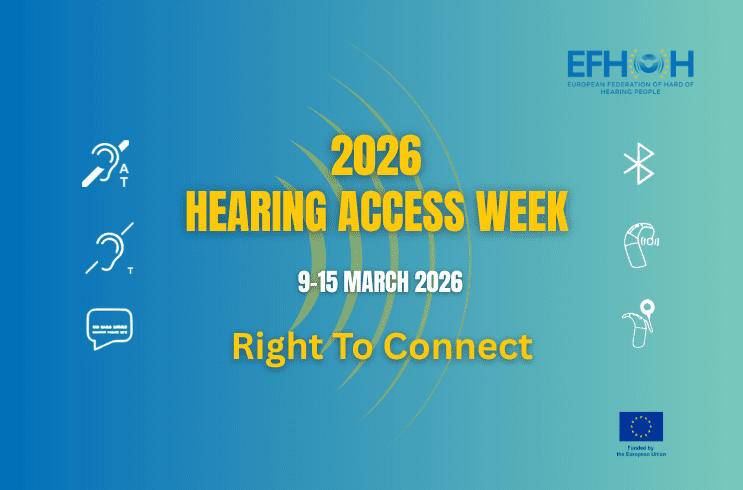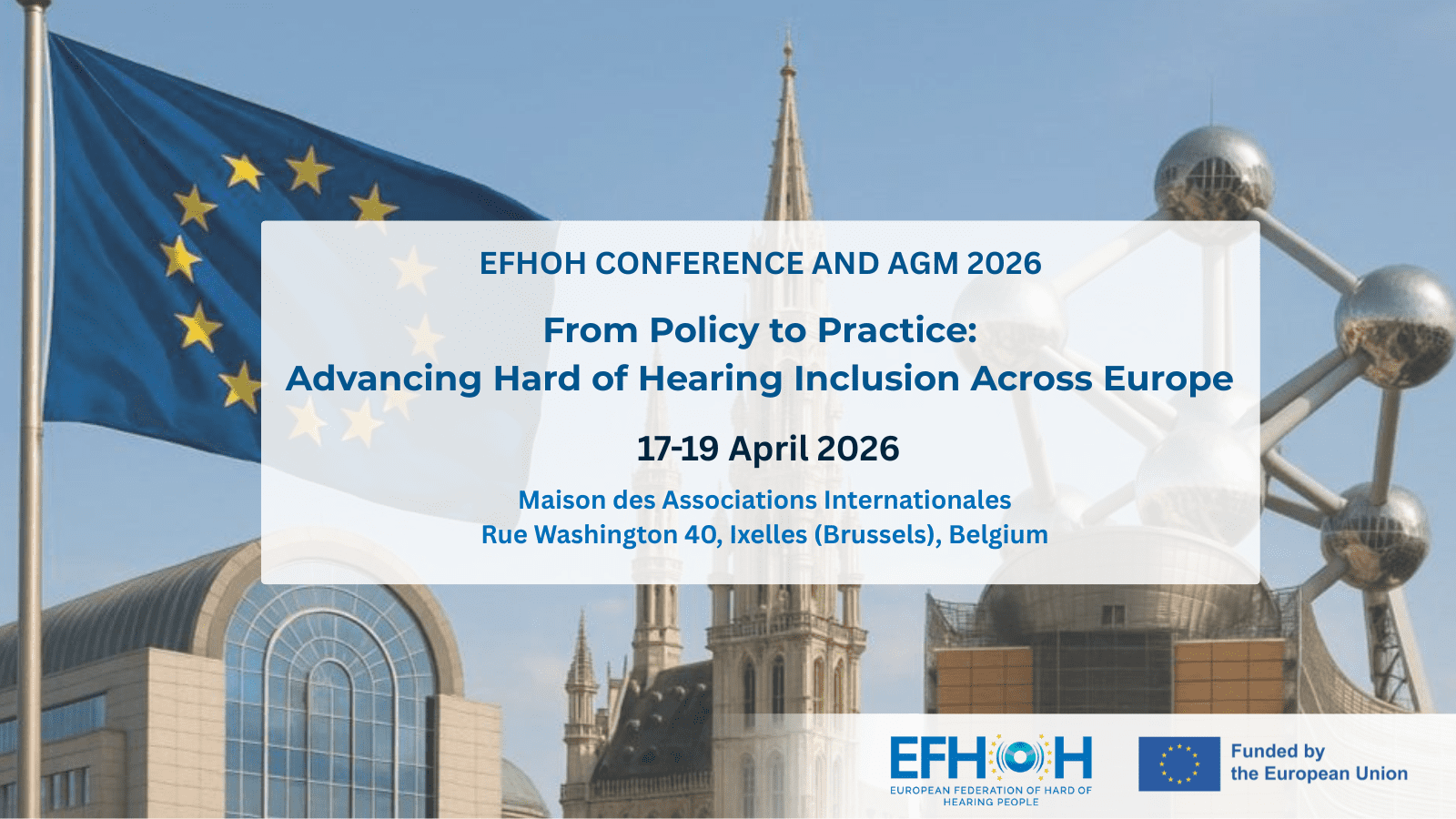
Following the World Hearing Day 2025, on March 4, EFHOH, AEA and EHIMA organized a Virtual Lunch Debate hosted by MEP Zala Tomašič, which brought together experts, policymakers, and advocates to discuss important issues concerning hearing health and accessibility.
This year’s theme “Changing Mindsets” aimed to break down the misconceptions surrounding hearing loss. EFHOH focused its efforts on highlighting the importance of hearing care as a crucial element of workforce inclusion. Across Europe, hard of hearing individuals face employment barriers due to stigma, lack of communication support, and limited access to assistive technology. The consequences are severe: higher unemployment, lower wages, and reduced career growth.
MEP Tomašič opened the discussion by sharing her personal connection to hearing loss, stressing that stigma, low awareness, and inadequate workplace policies limit opportunities. She called for stronger legal protections and better access to hearing technology.
Speakers stressed the urgent need for action, underlining that hearing loss is not just a medical issue but it directly impacts workforce inclusion and economic productivity.
The European Commission’s Disability Employment Package, presented by Monika Chaba, was highlighted as a key initiative to promote inclusive hiring and workplace accessibility, while Ariane Laplante-Lévesque from WHO Europe reinforced the need for national governments to prioritize hearing care in public health strategies. Adding to this, Shelly Chadha (WHO) raised concerns about the lack of awareness about hearing health, noting that few people check their hearing, delaying treatment by an average of 10 years. She urged individuals to take action, introducing HearWHO app as a tool for quick, self-guided hearing checks.
Our President Lidia Best stressed EFHOH’s findings that 67% of late-deafened individuals struggle to find a job, often facing career stagnation due to lack of workplace accommodations. Mark Laureyns from AEA warned that unaddressed hearing loss leads to higher burnout rates, reduced productivity, and early retirement, calling employers to integrate hearing health into workplace policies. From an economic perspective, the Secretary General of EHIMA Stefan Zimmer highlighted billions in lost productivity from untreated hearing loss and urged better financial support for hearing aids and cochlear implants.
The debate made it clear: hearing health must be prioritized in employment policies. Without action, job insecurity, early retirement, and financial instability will persist. Investing in accessible workplaces, early hearing care, and assistive technology is both a social responsibility and an economic necessity.
To learn more about the importance of hearing health in the workplace and watch recordings from the debate, visit our World Hearing Day page.




